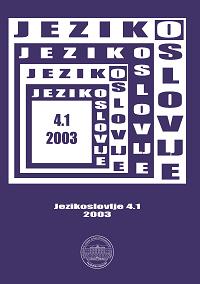High-level action metonymies in English and Spanish
High-level action metonymies in English and Spanish
Author(s): Francisco Ruiz de Mendoza, Olga Isabel Díez VelascoSubject(s): Language and Literature Studies
Published by: Filozofski fakultet, Sveučilište Josipa Jurja Strossmayera, Osijek
Keywords: predicational metonymy; causative/inchoative construction; middle construction; reflex pasive construction
Summary/Abstract: In this paper we postulate the existence of two high-level metonymies, ACTION FOR PROCESS and ACTION FOR (ASSESSED) RESULT, that we be-lieve correlate respectively with cases of the causative/inchoative alter-nation and the middle construction. In our view, for a full analysis of the semantics of these two kinds of construction, it is necessary to take into account the existence of an underlying action frame with an implicit agent; however, the action is linguistically presented as a non-controlled event. We observe that these two high-level metonymies are also exploited productively in Spanish, although with different realization patterns. The closest Spanish parallel to the English inchoative and middle constructions is the so-called reflex passive, whose grammatical status remains controversial. We agree with Alarcos (1994) and Maldonado (1999) in their claim that the reflex passive does not display the inherent passive features, so that cases of this construction may be equated to other reflexive constructions. In them se is not a clitic but a reflexive pronoun, the subject being coreferential with it. This insight is further substantiated by the fact that the addition of an agentive complement with por (‘by’) often yields fairly infelicitous examples. While in English both kinds of metonymy are instantiated by the reduction of an argument position of the predicate, in Spanish—where the reduction of an argument position is impossible—the goal is expressed separately through the reflexive pronoun se, the true agent is omitted, and the grammatical subject takes over this role.
Journal: Jezikoslovlje
- Issue Year: IV/2003
- Issue No: 1
- Page Range: 121-138
- Page Count: 18
- Language: English

